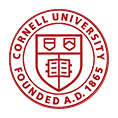Free Consultation: (610) 434-7138Tap to Call This Lawyer

Mark Scoblionko
Scoblionko, Scoblionko, Muir & Melman
Badges
Claimed Lawyer ProfileQ&A
Biography
Native of the Lehigh Valley. Has been in practice since 1968. Married to Deena since 1964; two children, three grandchildren. 2012 recipient of the Lifetime Service Award from Jewish Federation of the Lehigh Valley. Certified as "Civil Trial Advocate" by National Board of Trial Advocacy. Focuses on civil personal injury and commercial litigation, business and corporate law, real estate.
Practice Areas
- Business Law
- Business Contracts, Business Dissolution, Business Finance, Business Formation, Business Litigation, Franchising, Mergers & Acquisitions, Partnership & Shareholder Disputes
- Insurance Claims
- Bad Faith Insurance, Business Insurance, Disability Insurance, Health Insurance, Life Insurance, Motor Vehicle Insurance, Property Insurance
- Medical Malpractice
- Birth Injury, Medical Misdiagnosis, Pharmacy Errors, Surgical Errors
- Personal Injury
- Animal & Dog Bites, Brain Injury, Car Accidents, Construction Accidents, Motorcycle Accidents, Premises Liability, Truck Accidents, Wrongful Death
- Products Liability
- Drugs & Medical Devices, Motor Vehicle Defects, Toxic Torts
- Health Care Law
- Nursing Home Abuse
- Construction Law
- Construction Contracts, Construction Defects, Construction Liens, Construction Litigation
Additional Practice Area
- Automobile Accidents
Fees
- Free Consultation
-
Credit Cards Accepted
VISA, MasterCard -
Contingent Fees
(For personal injury matters)
Jurisdictions Admitted to Practice
- Pennsylvania
-

- 3rd Circuit
-

- U.S. Supreme Court
-

Languages
- English: Spoken, Written
Professional Experience
- Scoblionko, Scoblionko, Muir & Melman
- - Current
Education
- University of Michigan - Ann Arbor
- J.D. | Law
- -
- Honors: Graduated with Honors
- Activities: Assistant Editor, University of Michigan Law Review; Research Assistant, Constitutional Law
-

- Cornell University
- B.A. | English
- -
-

Awards
- Lifetime Service Award
- Jewish Federation of the Lehigh Valley
- Awarded upon retirement from the Board of the Jewish Federation
Professional Associations
- Pennsylvania State Bar
- Member
- Current
-

- Lehigh County Bar Association
- Member
- Current
-

- American Bar Association
- Member
- Current
-

- Pennsylvania Association for Justice
- Member
- Current
-

- American Association for Justice
- Member
- Current
-

Publications
Articles & Publications
- Notes
- Michigan Law Review
Certifications
- Civil Trial Advocate
- National Board of Trial Advocacy
Websites & Blogs
- Website
- Website
Legal Answers
437 Questions Answered
- Q. I need to have my wife added to a track of land I own in Mifflin county Pa. plus have the amount of acreage corrected.
- A: If there is a mortgage on the property, you will first need the lender’s consent. You will have to hire a surveyor to prepare a new legal description. You should then have a lawyer prepare a new deed for you, which, after execution, can be recorded. The new deed should include both the old and new legal descriptions. There will be a filing fee, but there should be no real estate transfer tax.
- Q. Want to block our driveway from neighbors using it cause we found out there is no right of way or easement.
- A: This is a complicated question, which needs to be reviewed with a lawyer. There are many missing facts.
- Q. In Pennsylvania do heirs receive inher. of a will if a bene. dies after the testator but before receiving their inher.?
- A: Please reference my original answer, which I believe to be correct. The presence or absence of a reference to per stripes is relevant only if the beneficiary died before the Testator, which, in this case, he/she did not.
Thus, as I said originally, based on the facts you presented, the share of the deceased beneficiary should pass to his/her estate.
Contact & Map

